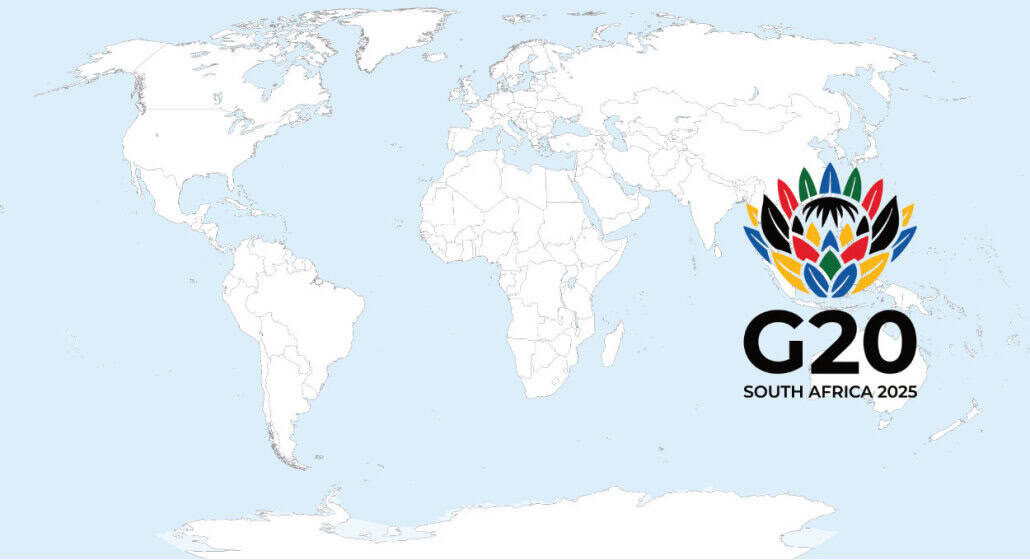By Janine Erasmus, with collaboration from Transparency International
First published on BusinessLive
In July finance ministers from G20 countries met in Durban and issued their first joint statement since October 2024.
As the first G20 presidency on African soil is now in its final quarter, the communique provides important indicators of how the forum is faring against two key challenges to financing for development: corruption and illicit financial flows (IFFs).
First, despite past White House threats to boycott South Africa’s G20 presidency, the US Treasury did send under-secretary for international affairs Michael Kaplan to Durban. The fact that all G20 members agreed on any statement — however generic — suggests the US hasn’t fully abandoned the G20 as a forum for economic dialogue just yet.
Second, with the US due to hold the G20 presidency in 2026, its reported plans to scale back G20 meetings to only the leaders’ summit and four finance minister and central Bank governor gatherings raise concerns. If Washington scraps the development and anti-corruption working groups, and leaves these topics to finance ministers, then prospects for meaningful G20 action on corruption and IFFs look grim.
The Durban communique omits any mention of corruption. The only nod to combating IFFs appears as an afterthought to a commitment promoting innovation in the “virtual assets sector” — a disappointing result, especially given South Africa’s long-standing efforts to spotlight the damage of IFFs.
Mbeki Panel Report on IFFs
In 2015 it was former president Thabo Mbeki who launched the landmark report of the high level panel on illicit financial flows from Africa, commonly known as the Mbeki Panel Report. It exposed the ongoing haemorrhaging of public finances from Africa through IFFs — money illegally earned, transferred, or used through commercial, criminal or corrupt activity.
Despite its considerable debt challenges, Mbeki memorably noted that Africa was actually “a net creditor to the rest of the world”.
A decade on from the report, awareness of the profound damage of IFFs on sustainable development, particularly in Africa, has grown. We better understand the amplifying effect of corruption on IFFs — depleting available resources, distorting public investments and degrading spending outcomes.
Transparency International has traced more than $3.7bn (R64bn) in African corruption-linked assets hidden abroad, involving nearly 400 companies, properties and accounts. Most were stashed outside the country of origin, with professional enablers such as lawyers and accountants facilitating 88% of the cases.
South Africa has made decent headway this year, including by managing to bring the G20 development working group to an agreement on 10 high-level principles for tackling IFFs
Amid such gloomy circumstances, it’s important to note that since the Mbeki Panel Report, progress has been slow but real:
- IFFs are now firmly on UN, IMF and World Bank agendas;
- many states have set up financial intelligence units; and
- leaks like the Panama Papers and the Pandora Papers have pushed beneficial ownership transparency into the mainstream.
In South Africa, the spotlight recently fell on inadequate money laundering legislation, resulting in the country’s debut in February 2023 on the Financial Action Task Force (FATF) grey list of jurisdictions under increased monitoring. Money laundering is one of the key mechanisms by which IFFs are carried out.
South Africa rushed through the General Laws (AML/CFT) Amendment Act in early 2023 to address legislative gaps. Although it did not prevent greylisting, South Africa’s actions prompted the FATF in June 2025 to acknowledge that the country had largely completed its action plan and warranted an on-site review to verify that reforms were under way and backed by lasting political commitment.
Cohesive action needed
While IFFs have surfaced in the G20’s issue-specific working groups this year, real progress depends on top-level political backing to mobilise the financial, regulatory, tax, customs and anti-corruption players needed for coherent domestic and international policy changes. Only through such leadership can the G20’s working groups revive their previous momentum.
South Africa has made decent headway this year, including by managing to bring the G20 development working group to an agreement on 10 high-level principles for tackling IFFs.
Unfortunately the working group looks like it may not return under next year’s G20 presidency, which risks all of this good work being forgotten. The challenge, then, is to ensure leaders seize this agenda as their own and keep it alive.
As the first African G20 presidency, South Africa has both the standing and responsibility to lead on IFFs — not least because of its position as a regional economic hub whose advanced financial framework allows easy access to global financial markets and systems. The Mbeki Panel’s warning remains urgent.
• Erasmus is website and content editor at Corruption Watch

